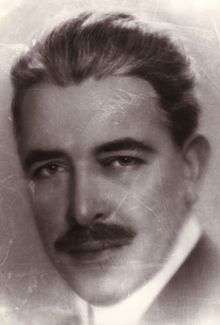Persian legislative election, 1928
| | |||||||||||||||||||||||||||||
|
| |||||||||||||||||||||||||||||
| |||||||||||||||||||||||||||||
| |||||||||||||||||||||||||||||
In the elections for the seventh Majlis, systematically rigged by the military and Interior ministry, handpicked representatives of Reza Shah were chosen to the parliament to ensure the exclusion of recalcitrants[1] and "unsuitable candidates who insisted on running found themselves either in jail or banished from their localities".[2]
During the campaign, all public speeches were prohibited by police.[3]
Hassan Modarres who was Tehran's most voted deputy in the previous election, was expelled without even a single vote in his favor. He objected the results, famously asking "What about the vote that I had cast for myself?".[4] Other candidates such as Mohammad Mossadegh, Hassan Taghizadeh and Hossein Ala' were not elected despite the demand for them.[3]
The royalist supporters of Reza Shah flourishing in Progress Party, were the majority of the parliament, dominating about 90% of the seats.[5]
The opposition was a minority with only two-seats held by Mohammad Farrokhi Yazdi representing Yazd and Mahmoud Reza Tolou of Lahijan.[4]
References
- ↑ Azimi, Fakhreddin (2008). Quest for Democracy in Iran: A Century of Struggle Against Authoritarian Rule. Harvard University Press. p. 56. ISBN 0674027787.
- ↑ Abrahamian, Ervand (2008). A History of Modern Iran. Cambridge University Press. p. 73. ISBN 978-0521528917.
- 1 2 Ladjevardi, Habib (1985). Labor Unions and Autocracy in Iran. Syracuse University Press. p. 19. ISBN 0815623437.
- 1 2 Haddad Adel, Gholamali; Elmi, Mohammad Jafar; Taromi-Rad, Hassan. Political Parties: Selected Entries from Encyclopaedia of the World of Islam. EWI Press. p. 37. ISBN 9781908433022.
- ↑ Atabaki, Touraj; Zurcher, Erik (2004). Men of Order: Authoritarian Modernization Under Atatürk and Reza Shah. I.B.Tauris. p. 93. ISBN 9781860644269.
